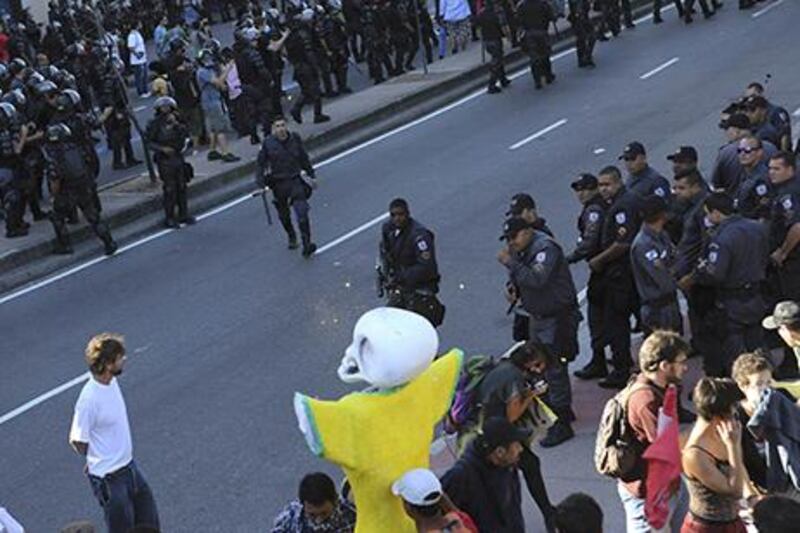The protesters many feared would wreck Brazil’s World Cup party failed to show up. While the national team fell short of claiming the championship, the country at least can say the tournament that wrapped up on Sunday night has gone off with only scattered demonstrations.
Brazil avoided a repeat of last year’s Confederations Cup, when more than a million people took to the streets to demand the government spend on education and public services instead of football. But the absence of conflict during the World Cup came less from dissipated anger than attention being glued to the games and police cracking down on even small demonstrations.
Paulo Cavalcantes, a 50-year-old public servant, shouted himself hoarse during last year’s protests, even bringing his teenage daughter along on the marches. During the World Cup, he chose to stay home.
“The police had orders to break the demonstrators,” he said, referring to when officers turned tear gas and stun guns on protesters. “I couldn’t put my family in harm’s way.”
Sunday night’s final in Rio de Janeiro featured the deployment of more than 25,000 officers and soldiers, the largest security detail in Brazil’s history.
During the Confederations Cup, small demonstrations over a 10-cent rise in bus and subway fares in Sao Paulo quickly escalated. A police clampdown on the mostly young demonstrators provoked anger nationwide, fuelling the country’s largest protests in a generation. But during the World Cup, aside from an early clash outside Rio’s Maracana stadium, anarchists were nowhere to be seen.
It was hard not to put anger aside during the World Cup party.
“I know why the World Cup is bad for Brazil, bad for people like us,” said Maria Cavalcantes, Paolo’s daughter. “But I still went out and bought a Brazil jersey. I couldn’t help myself.”
sports@thenational.ae
Follow our sports coverage on Twitter @SprtNationalUAE





